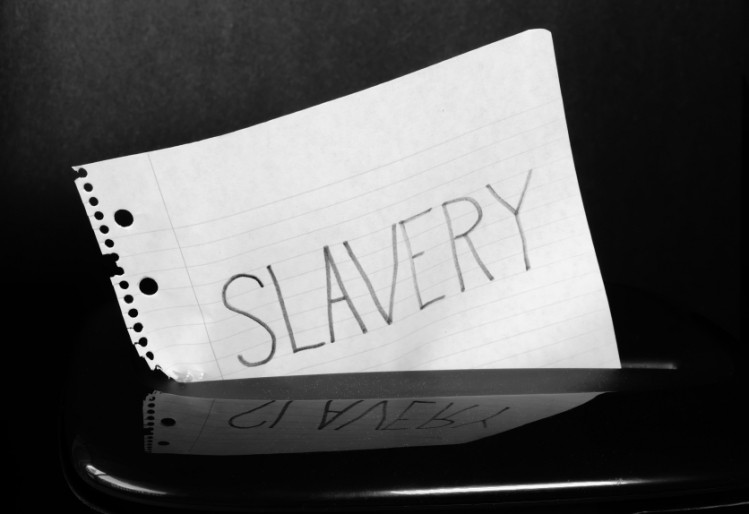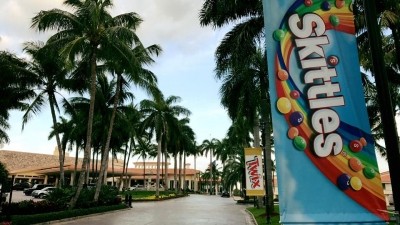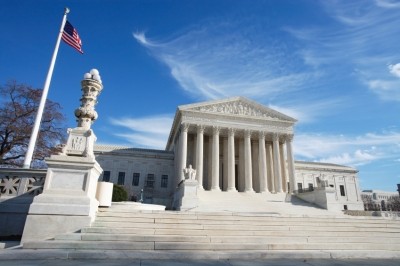Legal Watch
Cocoa child slavery ‘loophole’ axed under fresh US trade legislation

The Trade Facilitation and Trade Enforcement Act of 2015 has eliminated a rule dating back to 1930 that critics say has allowed cocoa and other products suspected of coming via forced or child labor to enter the US.
The 86-year old rule in the U.S. tariff code banned imports from slave labor except when goods could not be manufactured in sufficient quantities in the US to meet domestic demand.
Chocolate firm Equal Exchange previously called the rule a “loophole” that allowed cocoa possibly procured via the worst forms of child labor in West Africa to enter the US.
The new trade Act – ratified by Barack Obama on February 24 – removes the exemption.
What will be the impact?
Jonathan W. Emord, US food and drug law attorney at Emord & Associates, told ConfectioneryNews the law will likely dissuade manufactures outside the US that have used child and forced labor from doing so if the bulk of their cocoa sales is to American companies.
What did the 1930 U.S. tariff code say?
Goods from forced labor were forbidden from import into the US from 1932 onward under '19 U.S. Code § 1307 - Convict-made goods; importation prohibited'. But the Act said goods "manufactured which are not mined, produced, or manufactured in such quantities in the United States as to meet the consumptive demands of the United States" were exempt. Cocoa is not cultivated in the US and around 70% of production comes from West Africa.
“To some extent, that may affect the price of cocoa but it seems unlikely whether any effects on price would be significant enough to increase the cost of cocoa and chocolate at retail,” he said.
NCA does not oppose the law change
The National Confectioners Association (NCA) maintains its members – which include companies such as Mars, Nestlé USA and Mondelēz International – never utilized the 86-year-old exemption and “do not oppose” its removal.
“We support efforts that will help end forced labor practices for all merchandise, goods, wares and commodities imported into the United States,” said Christopher Gindlesperger, vice president of public affairs & communications at the NCA.
“It is our hope that the conversation around trade policy will encourage others to join us on our pursuit of improved labor conditions in cocoa-producing countries, and around the world,” he continued.
Tough to enforce?
US attorney Jonathan Emord said the law may mean increased efforts to inspect imports from companies known for using child or forced labor.
“But the law is inherently hamstrung by virtue of the fact that government inspections domestically will more often than not be unable to discern whether foreign sources of cocoa are at any point in time relying on child or forced labor and the US is often not well-positioned to inspect foreign facilities in countries where cocoa production is common.“
He added that it was “all but impossible” for US purchasers to determine if products containing cocoa – such as chocolate – were sourced from child labor or forced labor.
Chocolate often contains a blend of cocoa from various origins.
But David Biderman, a partner at Perkins Coie LLP, said: “This legislation should not affect the major chocolate importers and manufacturers as they have internal corporate codes of conduct prohibiting products made with slave labor from entering their supply chain, they enforce those codes of conduct, and they also are required to disclose these efforts under statutes such as the California Transparency in Supply Chain Act.”
Solidaridad and Fairtrade voice support, but warn issue is deep-rooted
Suzan-Hermina Yemidi, the global cocoa programme manager of Solidaridad Network, based in Accra, Ghana, said: "The change of US law will make child labor in the cocoa chain a legal liability of all parties involved, in both producing and consuming countries."
"‘We support it since a solution for the child labour can only be found in close collaboration of all public and private supply chain actors."
But she added: "Though positive in general, at Solidaridad we don’t believe in one-trick ponys. Child labour and its main cause, poverty, are very persistent problems that can only be solved in the long run and through structural change of the socio-economic conditions for farmers, including access to larger farms, financial services, knowledge and agricultural inputs."
Fairtrade America also applauded removal of the exemption and said it showed the US was determined to put an end to products produced with slave labor.
"Furthermore, this bill encourages businesses, both inside and outside the US, to look carefully at their supply chains and carry out due diligence to ensure human rights and compliance with fundamental principles of decent work," it said in a statement.
Scale of child labor and at risk countries
In July last year, Tulane University published a study that found 2.03m children in Côte D’Ivoire and Ghana were undertaking hazardous cocoa work in 2013/14, up 18% from 2008/09.
UK slavery laws
The UK passed the Modern Slavery Act 2015 in March last year. Under Part 6 Section 54, companies are obliged to publish policies, due diligence processes and its ‘effectiveness in ensuring that slavery and human trafficking is not taking place in its business or supply chains’. Companies must include a link to the slavery and human trafficking statement in a prominent place on their website’s homepage. Companies can face High Court civil action if they fail to meet the requirements.
Hazardous work is a proxy for the worst forms of child labor and includes land clearing, carrying heavy loads, exposure to agro-chemicals, using sharp tools, long working hours and night work.
The US Department of Labor maintains a list of goods and their source countries that it believes could be produced by child labor in violation of international standards.
It flags cocoa from Cameroon, Côte D’Ivoire, Ghana, Guinea, Nigeria and Sierra Leone.
It also lists sugarcane from certain countries in the Americas and Africa.
Cocoa child labor litigation
Chocolate firms are currently facing US lawsuits on allegations child labor exits in their supply chains.
Nestlé, ADM and Cargill face a civil suit brought by three former child slaves who claim they were forced to work unpaid on Ivorian cocoa farms for 14 hours a day in the 1990s, partly to supply the three companies. The cocoa and chocolate firms are contesting the case.
Consumer rights law firm Hagens Berman has also brought three separate class action lawsuits on behalf of private consumers against Mars, Nestlé and Hershey.
The suits claim the companies have violated Californian law, by failing to disclose that suppliers in Côte d’Ivoire rely on child laborers to procure cocoa. The firms say they are tackling the issue and will fight the cases.
In 2014, The Louisiana Municipal Police Employees' Retirement System (LAMPERS), a Hershey shareholder, challenged Hershey in Delaware Chancery Court, alleging complicity in illegal child labor and human trafficking on cocoa farms in West Africa.
Fernando Morales-de la Cruz, founder of Cafe for Change, and sister intiative Cacao For Change initiative, has said further lawsuits could be imminent.










